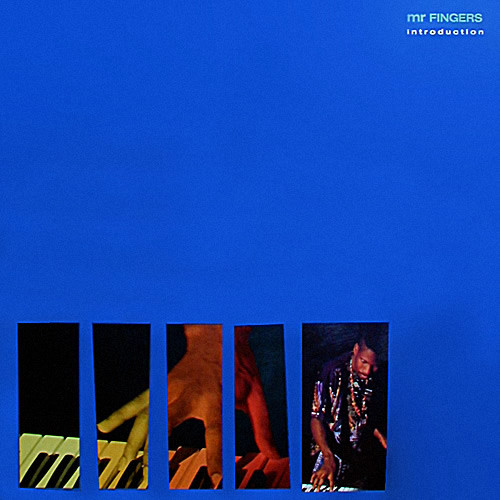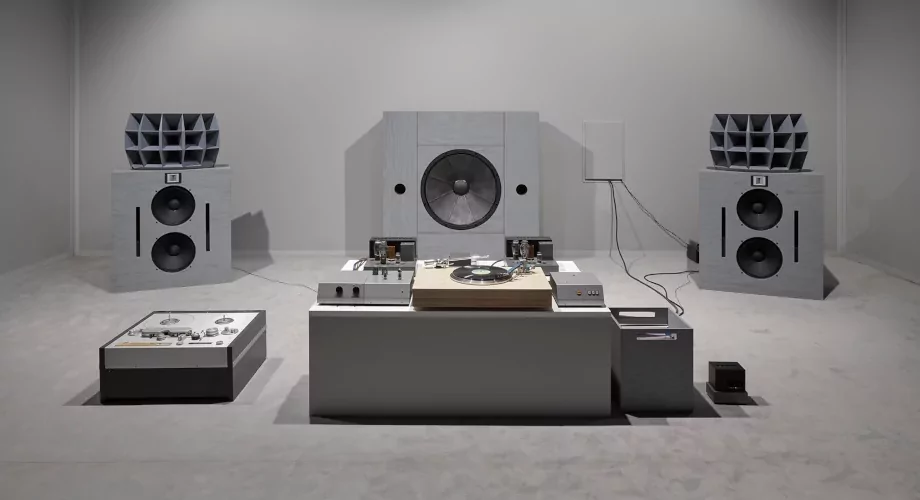Published on
May 9, 2023
Category
Features
Permanent Rotation is a series in which producers, DJs, and musicians go deep on the albums that have inspired them.
The biggest heroes of the underground typically wouldn’t describe themselves as such. Frankie Knuckles, Kelli Hand, Andrew Weatherall…all possessed a humility that made them even more honourable and endearing, and they went about their business with little regard for fame and a distaste for industry bullshit.
Colleen ‘Cosmo’ Murphy falls firmly into this category. She spent her formative years in New York, becoming program director at WNYU radio station while working at the fabled Dance Tracks record store in the East Village and finding a mentor in none other than David Mancuso, whom she met at one of his legendary Loft parties in the early ‘90s. She quickly became one of his most trusted friends and collaborators. In the decades since, she’s forged a decorated career as a DJ, producer, radio host and audiophile, now based in London but regularly speaking at events and lighting up dancefloors all over the world.
Perhaps unsurprisingly, given that she founded the classic album listening initiative Classic Album Sundays, when asked to choose the record that influenced her most, Colleen ‘Cosmo’ Murphy responded with some anguish.

“It was hard when you asked the question because it was specifically geared towards how it would influence my production,” she says. “That was difficult because a lot of things that influence my production aren’t albums or singles. Norman Whitfield, for instance, was the pioneer of psychedelic soul. He’s one of my favourite producers of all time. But it’s not like I completely attach to a Temptations album or a Rose Royce album, or an Undisputed Truth album–all the bands he produced and wrote for. They’re more singles and songs, right?”
I knew this would be good; I think as I smile, nod, and stir my coffee.
“Really, there’s this period between the ages of like 14 and 25 where any album that you fall in love with, that you listen to religiously over and over and over again, is in your brain for the rest of your life. You know everything about it, you know the basslines, you know the keyboard lines, you know the lyrics, you know everything.”
Read more: Eris Drew on Information Society
More than most other genres, dance music is led by singles, not albums, we concur, and I remind Murphy she’s free to choose any album at all. But she finds having a parameter helpful.
“The first dance album I fell in love with was Soul II Soul Club Classics Vol. One, but that’s when I was a radio DJ. I wasn’t a club DJ and I wouldn’t say it’s necessarily influenced my production. Massive Attack’s Blue Lines, that’s my next favourite dance album. That’s when I do my kind of downtempo dubby stuff, I can hear that coming through.”
But it was Mr. Fingers’ Introduction that brought it all together, first heard when Murphy was just beginning to DJ and attend parties at The Loft and started working at Dance Tracks soon afterwards. She was in the fledgling stages of a lifelong love affair with house music, and Introduction was a model of the genre’s thrilling scope.
“There’s so much going on in this album — obviously Larry Heard has a whole history of jazz,” says Murphy, noting that Heard started playing in a jazz fusion band in Atlanta when he was 17 (with Adonis, no less). “But it’s developed songwriting, there’s pop sensibilities in there, there’s counterpoint, there’s jazz, there’s house, there’s Chicago kind of futuristic house as well. There’s R&B, there’s soul, there’s neo-soul…”
There are also plenty of vocals on the album (Heard’s and those of celebrated house vocalist Robert Owens) which drew Murphy in as someone who remixes vocals “almost always” when producing these days. “I want a good song, good songwriting hooks, you know?” she says. “When I started listening to Introduction by Mr. Fingers a few days ago, I thought, ‘Oh my gosh, it’s all in here.”
The record came out when Murphy was 23 or 24 (putting it in that formative 14 to 25-year-old album listening bracket). Primal Scream’s Screamadelica was another contender for this column (“Andrew Weatherall’s production has especially influenced the indie dance stuff that I’ve done”) but as an exemplar of songwriting, Introduction stands apart.
“Sometimes, dance music and house music have very lazy vocals and songs,” says Murphy. “There are so many songs I pass over [to remix], and I’m not saying writing a song in the studio is necessarily a bad thing because it can work, and sometimes celebratory things like ‘I get lifted’ — it works, ‘get higher’ — it works. But sometimes it gets a bit tired if it’s the same thing over and over and there’s a lot of, ‘Hey, let’s just figure it out in the studio.’ It’s not good! And it’s lazy. And you cannot say that about Larry Heard. He’s such an evolved producer, engineer, songwriter, musician.”
To Murphy, Introduction’s production style is reminiscent of the work of her friend François Kevorkian. Each sound is really considered, she says, and “rounded and smooth and beautiful. There’s no real distortion. It’s all mixed well in relation to one another, and none of the frequencies are fighting. So they’re filling out this whole spectrum, this frequency spectrum from the bass, which is beautiful and polished and round and bouncy, all the way up to these really tingly highs. Everything is filled out and everything has its place, its own little sonic area, and it’s working together. Then there are counterpoint melodies and really cute little memorable riffs and hooks and keyboard lines.”

After a long hiatus, Murphy returned to the studio during the pandemic, inspired by Julia Cameron’s seminal book The Artist’s Way and the opportunity to remix a track that literally had her name on it —”Murphy’s Law” (by another fabulous Murphy, Róisín). The original is excellent, of course, while Colleen’s version turns up the glam with sheeny disco riffs, whompy bass notes and funked-up keys given room to breathe and dance on their own. Murphy says Kevorkian’s work was an influence — “that ‘80s Prelude sound”, and her Cosmodelica remix of “Murphy’s Law” kicked off a fresh run of remixes in the three years since, including work for Secret Night Gang, Lady Blackbird and Hard Feelings. But Murphy is very selective about what she decides to take on.
“I do turn down things that I don’t think I can do justice or where there’s an element that I don’t think I could do anything with,” she says. “Either I want to think in my head that I’m making it better or I’m making a difference.”
Murphy was recently in her old stomping ground in New York and was listening to Introduction on her headphones as she wandered around the city.
“It still sounds incredible to me. It’s so lush, it’s so well thought out, it’s so well engineered,” she says. Early house productions are often charming in their rawness or experimentalism, but Heard’s vision arrived complete. “This guy is already evolved. He has his songs. He has the arrangements. He has the production values. It’s just all there.”
Surely the only thing left to do now is to get Mr Heard on Classic Album Sundays…
Words by Annabel Ross
Volume Two of Murphy’s acclaimed Balearic Breakfast compilation comes out later this year. The last track on the compilation is a cover of Heard’s “What About This Love?” by a Japanese band Dip in the Pool, remixed by New Zealand duo Chaos in the CBD.





